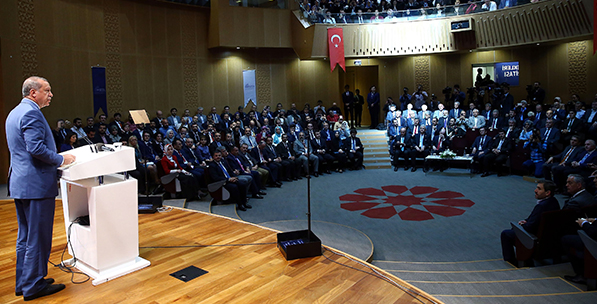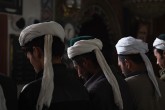Sunday’s general election marks the last of three critical elections taking place within 15 months. In recent weeks, the ruling Justice and Development Party’s (AK Party) campaign focused on its strong track record while pushing for a presidential system. Opposition parties, in turn, sought to gain popularity by making audacious promises to the electorate. Although a potential transition into presidential rule has not been the top item on the nation’s agenda, the issue will certainly remain a prominent feature of Turkey’s political landscape after the contest. The debate on presidentialism, no doubt, has drastically changed since former President Turgut Özal brought the issue up in the late 1980s when his Motherland Party (ANAP) was on the decline. His misfortune, perhaps, stemmed from the fact that voters were not fully aware of the political and economic risks involved with coalition governments.
This time around, advocates of the presidential system are tapping into President Recep Tayyip Erdoğan’s popularity and his role as an agent of change. As a matter of fact, the issue dates back to a 2007 constitutional amendment that introduced direct presidential elections for the first time in the Republic’s history. The debate, as such, reflects a broader process that will continue after Sunday’s elections – a process whose pace will be determined by the election results but will not be interrupted. The national conversation on presidentialism, after all, stems from the structural crisis that Turkey’s unique parliamentary system faces.
With the introduction of direct presidential elections, two equally influential offices – the Presidential Palace and the Prime Ministry – came to wield executive power. While the current political leadership has been able to work in harmony, politicians from two different parties would find it extremely difficult to co-exist. Meanwhile, the quest for a new political system, which was born out of the guardianship regime’s collapse, will continue in the future. Turkey’s search for a new system of government will be part of the national conversation immediately after Sunday’s election if the AK Party claims enough seats to push constitutional reform through Parliament. If the party fails to achieve this goal, the issue will remain on the political agenda at least until the 2019 parliamentary contest. The current debate, surely enough, represents the country’s effort to tailor its own version of presidentialism by combining existing practices with its political culture and needs. An important component of the ongoing effort relates to the introduction of checks and balances to promote the separation of powers without crippling the executive branch’s effectiveness.Last week, Erdoğan attended a conference on Turkey’s transition to presidentialism at the Foundation for Political, Economic and Social Research (SETA) and stressed that the political leadership was “addressing issues that the Ottoman-Turkish modernization project had ignored for two centuries to build the system of government anew.” The president furthermore argued that the parliamentary system rendered the country vulnerable to abuses by special interest groups, suggesting that presidentialism was necessary to make sure that Turkey could maintain a principled stance in the international arena while preventing future abuses of power by military commanders. The majority of G20 countries, Erdoğan said, had adopted a presidential system. “Whether or not the 2015 general elections will facilitate the transition to a new system of government, it is important to make a record of presidentialism in the nation’s memory,” Erdoğan concluded.
I encourage Daily Sabah’s readership to check out SETA Foundation’s most recent report on presidential systems around the globe to develop a deeper understanding of how the United States and emerging powers regulate key issues including veto power, rule by decree and party affiliation.
[Daily Sabah, May 29, 2015]


